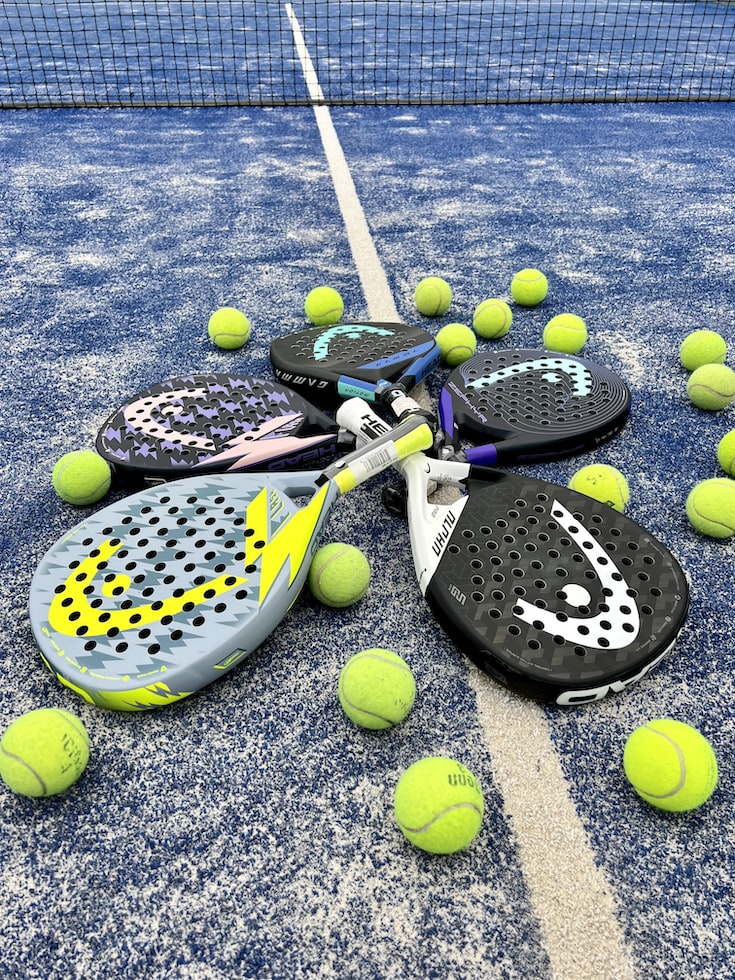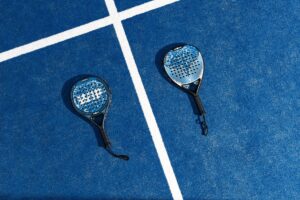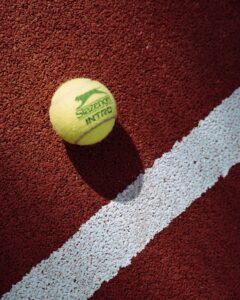Mastering Padel: A Beginner’s Guide to the Mental Aspect of the Game
3 min read
Mastering Padel: A Beginner’s Guide to the Mental Aspect of the Game
Welcome, fellow padel enthusiasts! Whether you’re new to the sport or looking to enhance your skills, it’s crucial to understand the mental aspect of padel. In this guide, we’ll delve into the intricacies of the game, helping you pave your way to success on the court.
The Game within the Game
Padel may seem like a physical sport, but it’s so much more. It’s a delicate balance between strategy, technique, and, crucially, your mental game. Understanding and harnessing the mental aspect sets the stage for a winning performance.
As a beginner, it’s natural to focus primarily on learning the rules and mastering basic strokes. However, neglecting the psychological side of the game can hinder your progress. So, let’s jump in and explore some key concepts that will help you level up your mental game!
Embrace the Zen Mindset
Padel, like its distant cousin tennis, demands focus and clarity of mind. The ability to channel your thoughts and emotions effectively is essential. As a beginner, it’s challenging to maintain composure when faced with intense rallies or competitive opponents. However, with practice, you can develop a zen-like mindset even in the most challenging situations.
One crucial technique is mindfulness. This involves staying present and fully engaged in the current moment. By letting go of distractions and worries about past or future shots, you can better focus on the ball, your body, and your opponent’s movements. This heightened awareness increases your responsiveness and decision-making abilities.
The Power of Visualization
Visualization is a powerful tool that professional padel players use to enhance their performance. As a beginner, you can tap into this technique and improve your mental game significantly. Picture yourself making perfect shots, moving seamlessly across the court, and ultimately winning your matches.
During practice or downtime, close your eyes and vividly imagine yourself playing and succeeding. Engage all your senses – feel the texture of the racket grip, hear the satisfying thud as you make contact with the ball, and smell the crisp morning air on the court. This mental rehearsal strengthens the neural pathways associated with padel, making it easier to execute those skills when you step onto the court.
Manage Your Emotions
Padel has a way of evoking strong emotions – excitement, frustration, elation, and sometimes disappointment. Being aware of your emotional state is vital to prevent it from affecting your performance negatively. Acknowledge your emotions but practice emotional control to maintain a steady mindset.
If you miss a shot or make an error, avoid dwelling on it. Learn to let go and focus on the next point. Negative emotions can create a mental block that interferes with your gameplay. Instead, celebrate your successes, no matter how small, and use them as building blocks for your confidence.
The Power of Positive Self-Talk
Our internal dialogue can significantly impact our performance on the court. Engage in positive self-talk by replacing negative thoughts with encouraging, affirming ones. Remind yourself that mistakes are part of the learning process and that you have the potential to overcome challenges.
Speak to yourself as if you were your own coach, offering guidance and motivation. “You’ve got this!”, “Stay focused!”, and “Believe in yourself!” are some phrases that can help boost your confidence and enhance your mental game.
Conclusion
As a beginner, understanding the mental aspect of padel is crucial for your growth and success. By embracing a zen mindset, practicing visualization, managing your emotions, and engaging in positive self-talk, you are well on your way to becoming a padel maestro.
Remember, mastering padel is not just about physical prowess; it’s an art that encompasses both body and mind. So, step onto the court with confidence, keep these mental strategies in mind, and embrace the challenges as an opportunity to grow.






